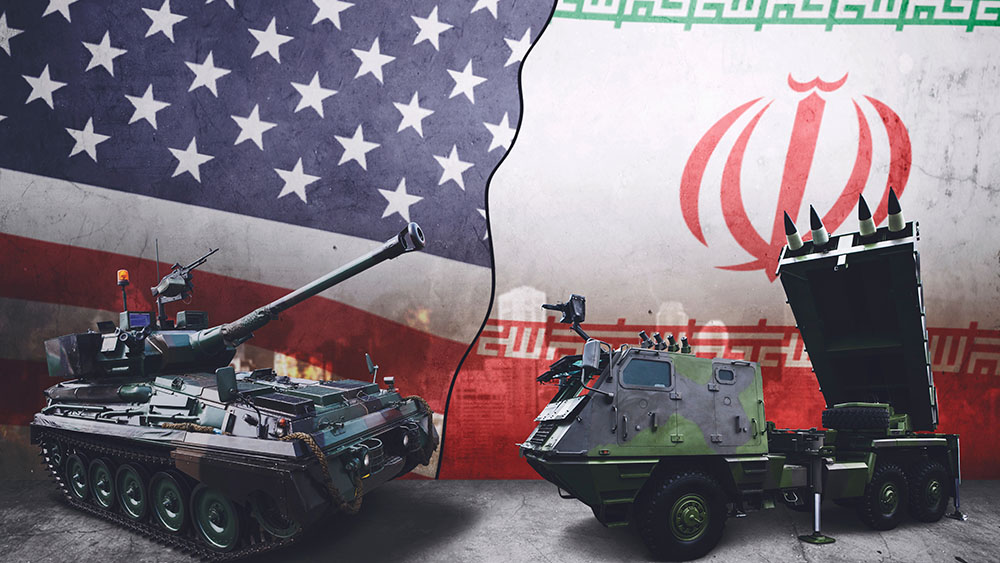 Parler
Parler Gab
Gab
- The fifth round of U.S.-Iran nuclear negotiations in Rome, mediated by Oman, saw "some but not conclusive progress." Key disagreements persist, particularly over Iran's demand for domestic uranium enrichment, a red line for the United States.
- Omani Foreign Minister Badr al-Busaidi acknowledged challenges but expressed cautious optimism, proposing ideas to bridge gaps. Both sides agreed to continue talks, praising Muscat's facilitation.
- U.S. envoy Steve Witkoff held discussions with Israeli officials (including Mossad's director) before meeting Iran's Abbas Araghchi, highlighting Israel's involvement despite its opposition to a deal.
- Iran threatened to move nuclear materials to undisclosed locations, complicating international monitoring. Israel, fearing Iran is nearing weapons-grade enrichment, accelerated preparations for a potential military strike.
- With Iran refusing to concede on enrichment and Israel considering military action, the standoff echoes 2018 tensions. Diplomatic efforts continue, but the threat of a catastrophic regional war looms.
A potential nuclear showdown between Israel and Iran looms
Meanwhile, Israel has accelerated preparations for a potential military strike on Iran's nuclear facilities. Tel Aviv fears time is running out to prevent Tehran from obtaining a weapon. (Related: Israel weighs strikes on Iranian nuclear facilities, with or without U.S. backing.) The crisis deepened Thursday, May 22 – a day before the fifth round of talks – when Iran threatened to move its nuclear materials to undisclosed locations. The move complicated international monitoring efforts and raised the specter of a dangerous escalation. Israel's urgency stems from intelligence assessments suggesting Iran is nearing weapons-grade uranium enrichment. A source told Axios that Israeli planners believe their operational window for a successful strike is narrowing. Araghchi, anticipating such a move, warned in a letter to the United Nations that it would relocate nuclear materials if threatened. The decision to relocate those would severely hinder International Atomic Energy Agency oversight. His letter accused Israel of "fanaticism" and warned that any attack would make the U.S. "complicit." The standoff echoes the tensions of 2018, when the U.S. withdrew from the Obama-era nuclear deal, prompting Iran to abandon enrichment limits. Since then, Tehran has rapidly advanced its program, bringing it closer than ever to a bomb. The Trump administration seeks a diplomatic solution. But with Iran unwilling to concede on enrichment and Israel poised for military action, the risk of conflict looms larger than at any point in recent years. As talks inch forward, the world watches whether diplomacy can avert a catastrophic confrontation – or if the Middle East is hurtling toward a war with global repercussions. Watch U.S. President Donald Trump reiterating that Washington is "very close" to securing a nuclear deal with Tehran. This video is from the Cynthia's Pursuit of Truth channel on Brighteon.com.More related stories:
Trump's Gulf tour sparks Iran nuclear deal breakthrough amid regional shifts. Iran warns Israel: Nuclear doctrine may shift if its nuclear facilities are attacked. Iran vows uranium enrichment will continue as U.S. demands zero concessions in nuclear standoff. Sources include: InfoWars.com Axios.com 1 Axios.com 2 Brighteon.comParasites, environmental toxins and the silent health crisis sweeping America
By Willow Tohi // Share
More than 1,300 Israeli academics demand end to Gaza war, warn of “moral collapse”
By Laura Harris // Share
Study reveals the HIDDEN DANGERS in children’s breakfast cereals
By Ava Grace // Share
Ukraine defaults on $665 million debt payment as war spending leaves creditors unpaid
By Cassie B. // Share
Governments continue to obscure COVID-19 vaccine data amid rising concerns over excess deaths
By patricklewis // Share
Tech giant Microsoft backs EXTINCTION with its support of carbon capture programs
By ramontomeydw // Share
Germany to resume arms exports to Israel despite repeated ceasefire violations
By isabelle // Share










